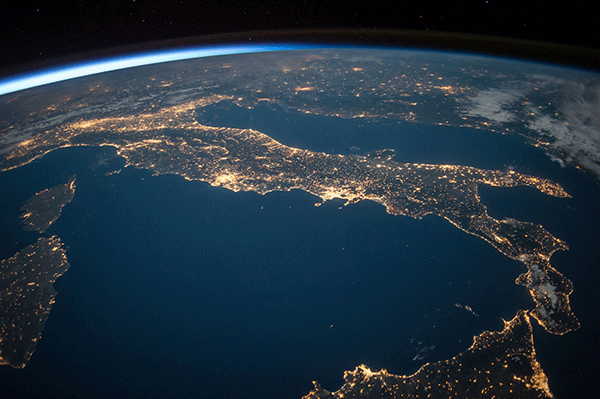Is anyone else bored of the Billionaire Space Race? All summer long it seems we’ve been reading reports of very rich white men conquering the final frontier. First Richard Branson went into space with Virgin Galactic, then Jeff Bezos launched Blue Origin into outer space and this month Elon Musk claimed SpaceX can “probably” land humans on the moon before 2024.
Commentators have questioned spending such huge amounts of carbon and cash on launching rockets into space when the money could be spent fighting climate change. There has even been a suggestion going into space is a way for these older men to prove their masculinity, their machismo and their buccaneering spirit.
The trouble is I’ve interviewed an astronaut and it seems to me that space travel is about none of these things, it is about resilience and attention to detail – and vegetables.
Don Pettit has spent months on the International Space Station (ISS). (Unlike Jeff Bezos who spent 10 minutes in space.) In his blog for NASA, he did not write about colonising other planets, but his relationship with a courgette.
The ‘Diary of a Space Zucchini’ became a famous piece that taught us about life on the ISS and the importance of astronauts’ mental health. In it the eponymous zucchini – or courgette, as we call them in the UK – describes growing from a tiny seed into a flowering plant on board a habitable satellite.
When I interviewed Pettit recently about the blog, he admitted it was not an official experiment. Of course, NASA have ongoing trials on growing food in space. Clearly it is something we are going to have to do to stand a chance of surviving away from our home planet for long. But the ‘Space Zucchini’ was not part of this.
Pettit was growing the courgette as a pot plant. A bit of ‘green’ to keep him sane during six months away from Earth. He described how watching the courgette grow not only helped him, but his crew mates to deal with homesickness. At one point his fellow astronauts even offered to do the hoovering in return for a moment with their noses pressed up to the ‘earthy smell’ of a living plant.
As a writer this fascinates me. Us humans are so greedy and curious, that given the opportunity and the money we will try to explore other planets. But when it comes down to actually being in space, an electro-magnetic environment full of bleeps and metal, we still crave the company of a living plant.

It made me think of my own time gardening and how I always feel good afterwards. Granted, at this time of year, when you are drowning in courgettes, it is easy to forget gardening is good for mental health, as well as food. But Pettit proved this in his experiment on the ISS and several studies back it up. A report by the University of Sheffield last year found mental health benefits from allotment gardening. There are even suggestions that exposure to bacteria in soil can make you happy.
Gardening reminds us to slow down, to pay attention to the small things and to tend the soil in order to look after the future. Perhaps the missions of the space billionaires will be good for the development of science – I hope so, but in the meantime we have a planet here that needs us to pay attention to the future by protecting what we already have. Gardening on a large scale by planting trees, growing food with a low carbon footprint and boosting biodiversity could all help.
Maybe Bezos, Branson and Musk should plant a garden, rather than launch themselves into space; they could well learn more.












Beautifully and politely put Louise.
Thank you! I hope you are not drowning in courgettes!!